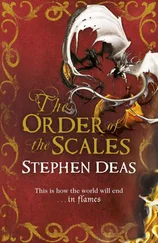3. I found, therefore, that the second of the Ptolemies was a king who was extraordinarily diligent in what concerned learning, and the collection of books; that he was also peculiarly ambitious to procure a translation of our law, and of the constitution of our government therein contained, into the Greek tongue. Now Eleazar the high priest, one not inferior to any other of that dignity among us, did not envy the forenamed king the participation of that advantage, which otherwise he would for certain have denied him, but that he knew the custom of our nation was, to hinder nothing of what we esteemed ourselves from being communicated to others. Accordingly, I thought it became me both to imitate the generosity of our high priest, and to suppose there might even now be many lovers of learning like the king; for he did not obtain all our writings at that time; but those who were sent to Alexandria as interpreters, gave him only the books of the law, while there were a vast number of other matters in our sacred books. They, indeed, contain in them the history of five thousand years; in which time happened many strange accidents, many chances of war, and great actions of the commanders, and mutations of the form of our government. Upon the whole, a man that will peruse this history, may principally learn from it, that all events succeed well, even to an incredible degree, and the reward of felicity is proposed by God; but then it is to those that follow his will, and do not venture to break his excellent laws: and that so far as men any way apostatize from the accurate observation of them, what was practical before becomes impracticable 5and whatsoever they set about as a good thing, is converted into an incurable calamity. And now I exhort all those that peruse these books, to apply their minds to God; and to examine the mind of our legislator, whether he hath not understood his nature in a manner worthy of him; and hath not ever ascribed to him such operations as become his power, and hath not preserved his writings from those indecent fables which others have framed, although, by the great distance of time when he lived, he might have securely forged such lies; for he lived two thousand years ago; at which vast distance of ages the poets themselves have not been so hardy as to fix even the generations of their gods, much less the actions of their men, or their own laws. As I proceed, therefore, I shall accurately describe what is contained in our records, in the order of time that belongs to them; for I have already promised so to do throughout this undertaking; and this without adding any thing to what is therein contained, or taking away any thing therefrom.
4. But because almost all our constitution depends on the wisdom of Moses, our legislator, I cannot avoid saying somewhat concerning him beforehand, though I shall do it briefly; I mean, because otherwise those that read my book may wonder how it comes to pass, that my discourse, which promises an account of laws and historical facts, contains so much of philosophy. The reader is therefore to know, that Moses deemed it exceeding necessary, that he who would conduct his own life well, and give laws to others, in the first place should consider the Divine nature; and, upon the contemplation of God's operations, should thereby imitate the best of all patterns, so far as it is possible for human nature to do, and to endeavor to follow after it: neither could the legislator himself have a right mind without such a contemplation; nor would any thing he should write tend to the promotion of virtue in his readers; I mean, unless they be taught first of all, that God is the Father and Lord of all things, and sees all things, and that thence he bestows a happy life upon those that follow him; but plunges such as do not walk in the paths of virtue into inevitable miseries. Now when Moses was desirous to teach this lesson to his countrymen, he did not begin the establishment of his laws after the same manner that other legislators did; I mean, upon contracts and other rights between one man and another, but by raising their minds upwards to regard God, and his creation of the world; and by persuading them, that we men are the most excellent of the creatures of God upon earth. Now when once he had brought them to submit to religion, he easily persuaded them to submit in all other things: for as to other legislators, they followed fables, and by their discourses transferred the most reproachful of human vices unto the gods, and afforded wicked men the most plausible excuses for their crimes; but as for our legislator, when he had once demonstrated that God was possessed of perfect virtue, he supposed that men also ought to strive after the participation of it; and on those who did not so think, and so believe, he inflicted the severest punishments. I exhort, therefore, my readers to examine this whole undertaking in that view; for thereby it will appear to them, that there is nothing therein disagreeable either to the majesty of God, or to his love to mankind; for all things have here a reference to the nature of the universe; while our legislator speaks some things wisely, but enigmatically, and others under a decent allegory, but still explains such things as required a direct explication plainly and expressly. However, those that have a mind to know the reasons of every thing, may find here a very curious philosophical theory, which I now indeed shall wave the explication of; but if God afford me time for it, I will set about writing it 6after I have finished the present work. I shall now betake myself to the history before me, after I have first mentioned what Moses says of the creation of the world, which I find described in the sacred books after the manner following.
1This preface of Josephus is excellent in its kind, and highly worthy the repeated perusal of the reader, before he set about the perusal of the work itself.
2That is, all the Gentiles, both Greeks and Romans.
3We may seasonably note here, that Josephus wrote his Seven Books of the Jewish War long before he wrote these his Antiquities. Those books of the War were published about A.D. 75, and these Antiquities, A. D. 93, about eighteen years later.
4This Epaphroditus was certainly alive in the third year of Trajan, A.D. 100. See the note on the First Book Against Apion, sect. 1. Who he was we do not know; for as to Epaphroditus, the freedman of Nero, and afterwards Domitian's secretary, who was put to death by Domitian in the 14th or 15th year of his reign, he could not be alive in the third of Trajan.
5Josephus here plainly alludes to the famous Greek proverb, If God be with us, every thing that is impossible becomes possible.
6As to this intended work of Josephus concerning the reasons of many of the Jewish laws, and what philosophical or allegorical sense they would bear, the loss of which work is by some of the learned not much regretted, I am inclinable, in part, to Fabricius's opinion, ap. Havercamp, p. 63, 61, That "we need not doubt but that, among some vain and frigid conjectures derived from Jewish imaginations, Josephus would have taught us a greater number of excellent and useful things, which perhaps nobody, neither among the Jews, nor among the Christians, can now inform us of; so that I would give a great deal to find it still extant."
BOOK I
Containing The Interval Of Three Thousand Eight Hundred And Thirty-Three Years. — From The Creation To The Death Of Isaac
Table of Contents
CHAPTER 1
The Constitution Of The World And The Disposition Of The Elements
Table of Contents
1. In the beginning God created the heaven and the earth. But when the earth did not come into sight, but was covered with thick darkness, and a wind moved upon its surface, God commanded that there should be light: and when that was made, he considered the whole mass, and separated the light and the darkness; and the name he gave to one was Night, and the other he called Day: and he named the beginning of light, and the time of rest, The Evening and The Morning, and this was indeed the first day. But Moses said it was one day; the cause of which I am able to give even now; but because I have promised to give such reasons for all things in a treatise by itself, I shall put off its exposition till that time. After this, on the second day, he placed the heaven over the whole world, and separated it from the other parts, and he determined it should stand by itself. He also placed a crystalline (firmament) round it, and put it together in a manner agreeable to the earth, and fitted it for giving moisture and rain, and for affording the advantage of dews. On the third day he appointed the dry land to appear, with the sea itself round about it; and on the very same day he made the plants and the seeds to spring out of the earth. On the fourth day he adorned the heaven with the sun, the moon, and the other stars, and appointed them their motions and courses, that the vicissitudes of the seasons might be clearly signified. And on the fifth day he produced the living creatures, both those that swim, and those that fly; the former in the sea, the latter in the air: he also sorted them as to society and mixture, for procreation, and that their kinds might increase and multiply. On the sixth day he created the four-footed beasts, and made them male and female: on the same day he also formed man. Accordingly Moses says, That in just six days the world, and all that is therein, was made. And that the seventh day was a rest, and a release from the labor of such operations; whence it is that we Celebrate a rest from our labors on that day, and call it the Sabbath, which word denotes rest in the Hebrew tongue.
Читать дальше












